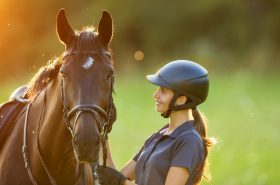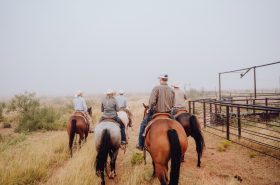It’s been over a decade now since I competed on horses in any fashion, but once upon a time, I was a serious and competitive barrel racer who planned my life around the races I wanted to attend.
Because of the popularity of the sport here in Oklahoma, you can find a barrel race to
attend nearly every weekend and many weekdays as well—all year long. However, keeping a
horse in competition all year long isn’t the best idea.
I decided early on that the winter months would be a good time to give my horses (and myself) a
break. Cold weather isn’t my favorite anyway, so it seemed the most logical time of year to do it.
I’ve also learned that there are many benefits to giving your horse a break, whether it be in
winter or any other time of year.
Why Breaks Are Beneficial
Horses aren’t machines that can continually keep going, even with the occasional “tune-up”.
Like us, they need rest both short term and long term. While short-term rest means allowing
them to recover from intense exercise for a day or two or give them training breaks throughout
the week, long-term breaks allow horses to heal and recover from both the mental and physical
stress of competition.
How Long Should My Horse’s Break Be?
Two to three months is best for most horses. No matter what discipline they participate in, all
horses will experience wear and tear, so time off is needed to allow the body to heal itself.
Younger horses are most in need of these breaks and may even benefit from more than one big
break per year. Breaks like these will allow their growth plates to develop appropriately and give
them time to reach musculoskeletal maturity. Time off is also important to ease the constant
mental pressure of training. Think of it like school: kids get the summer off to rest and
recuperate and young horses should be no different!
When a Long Break isn’t Recommended
Believe it or not, older horses may not need the same type of extended break that younger
horses do. Though, yes, they have wear and tear, they also likely have osteoarthritis
which can be benefitted by regular, low-intensity exercise. So even if you take a break from
competition, light exercise regularly may be better for your older horse than
giving them several months off with no exercise at all.



